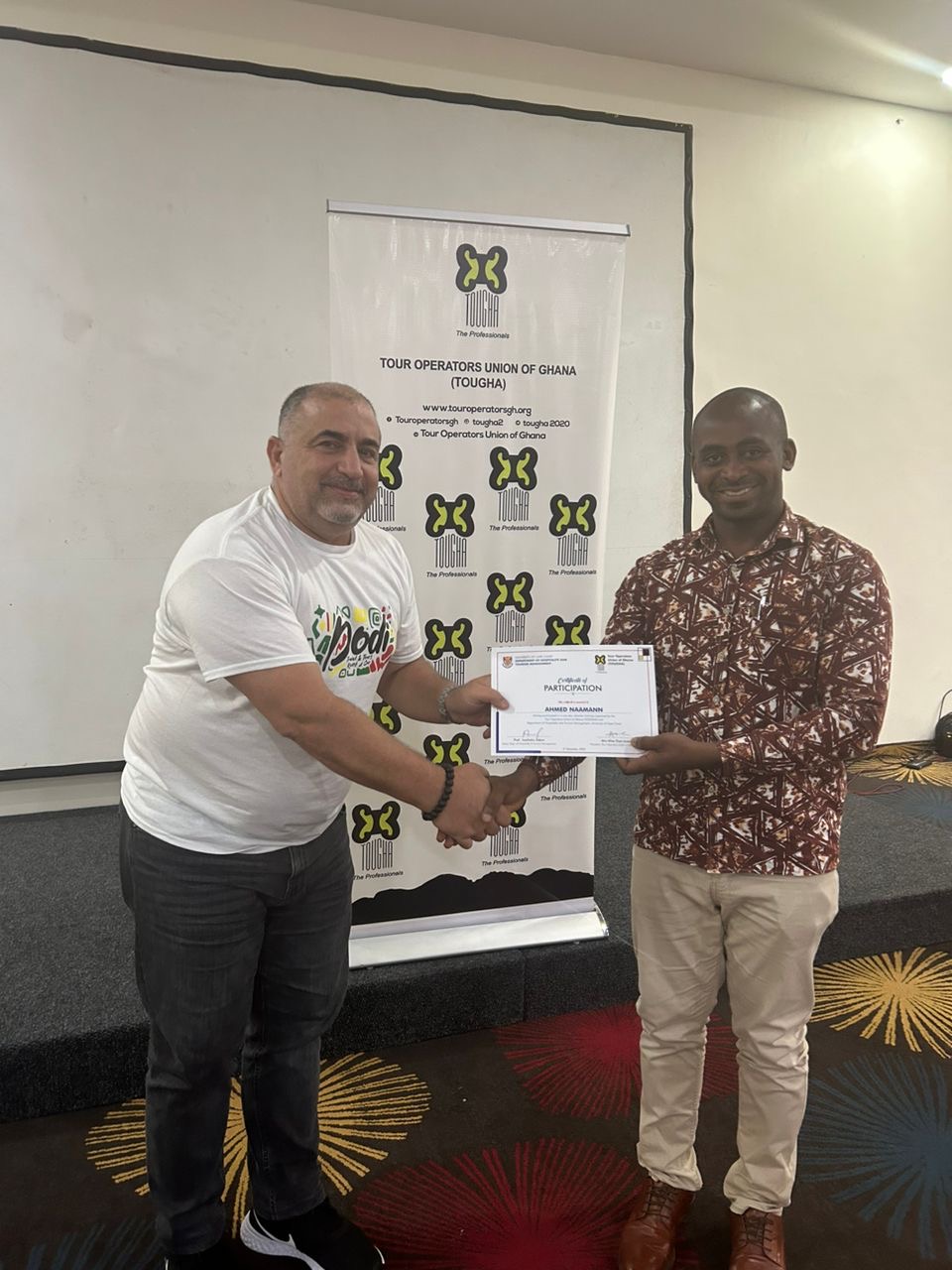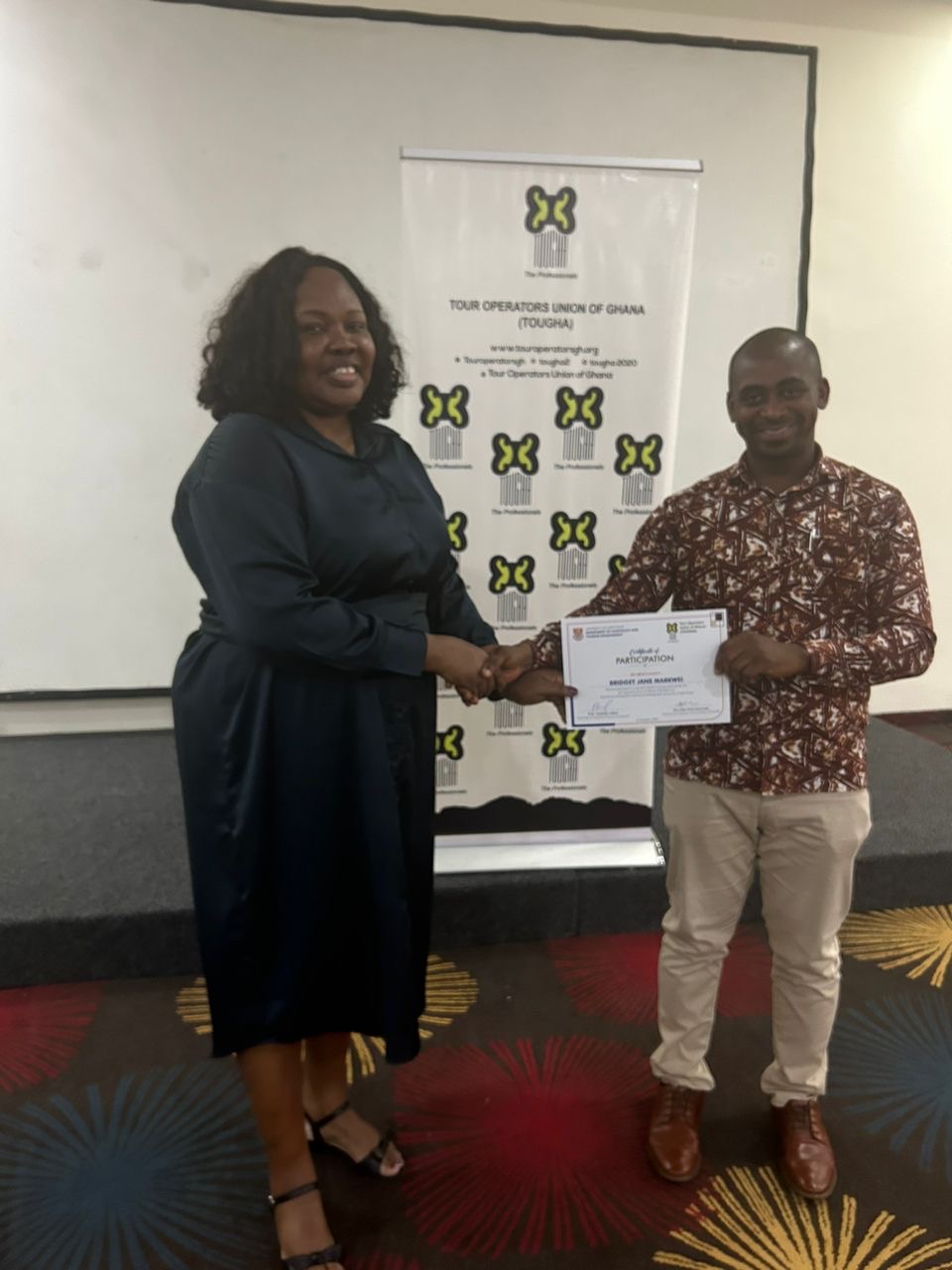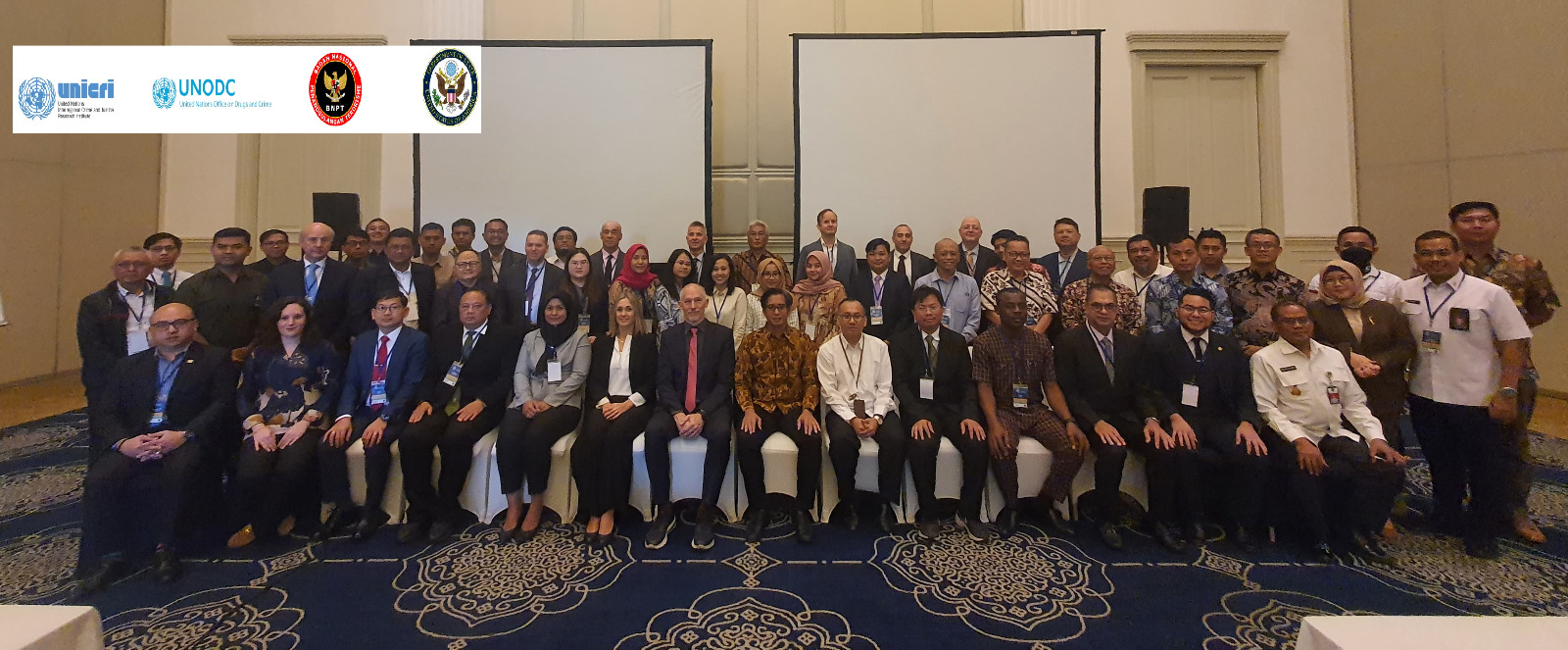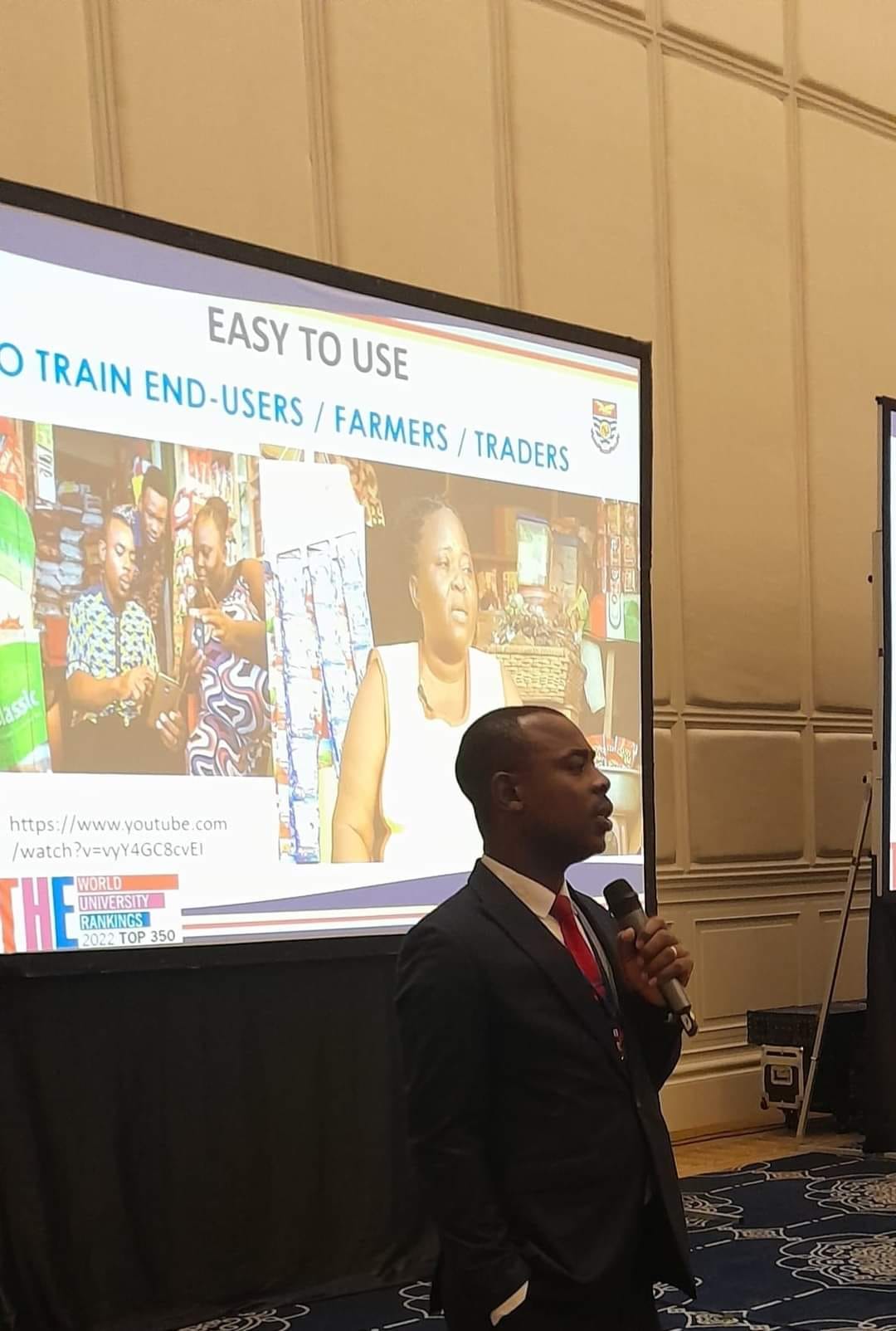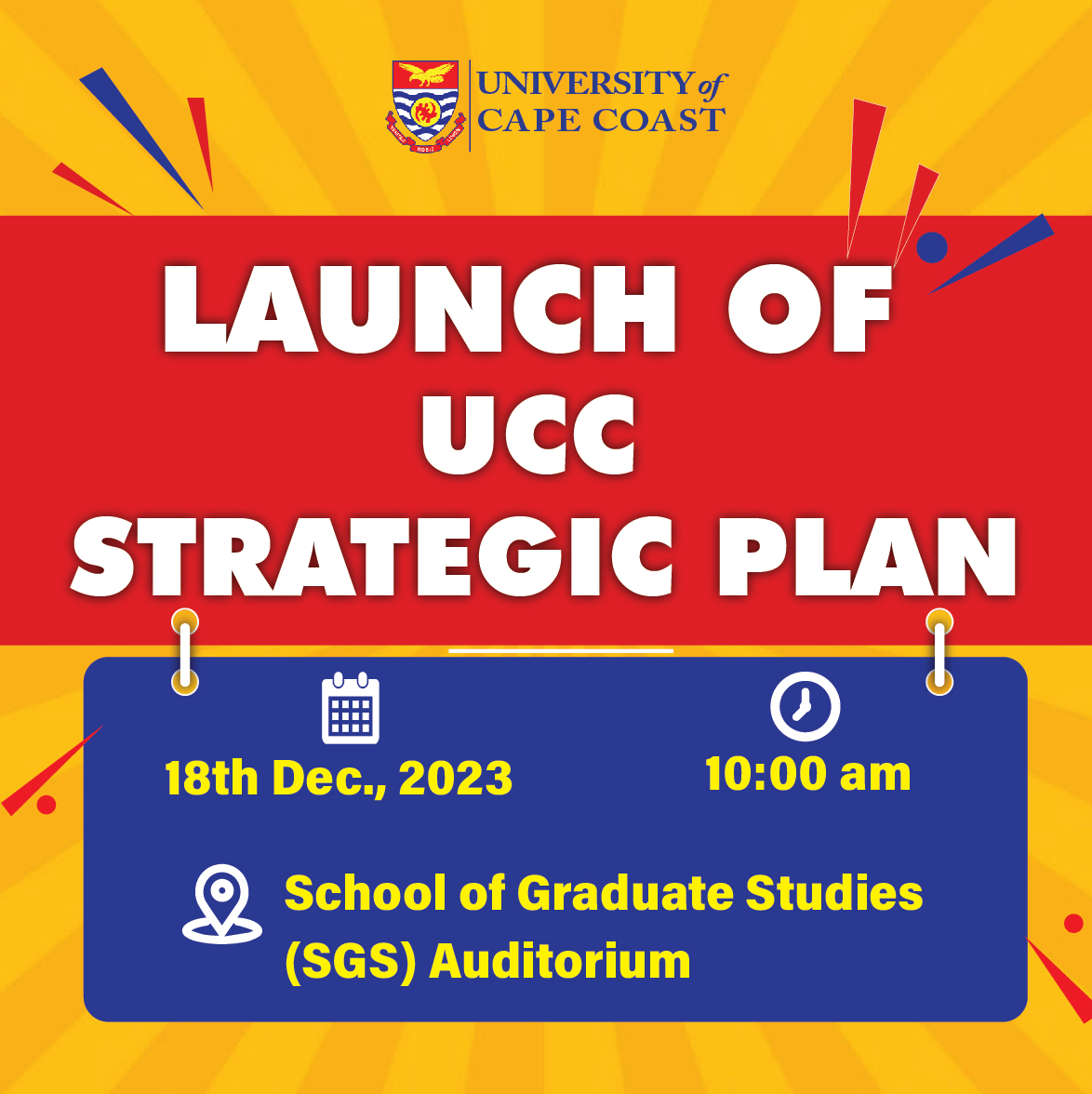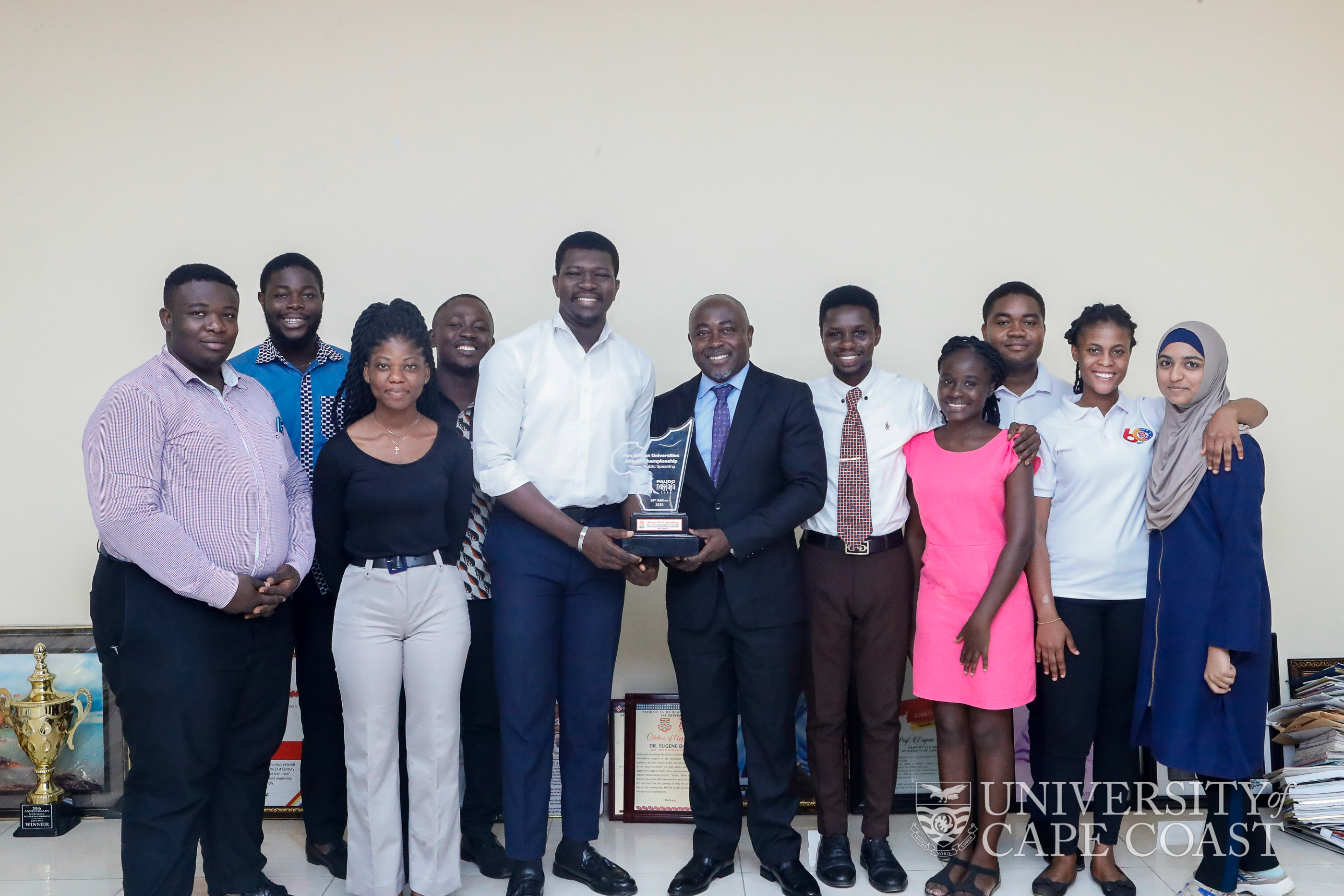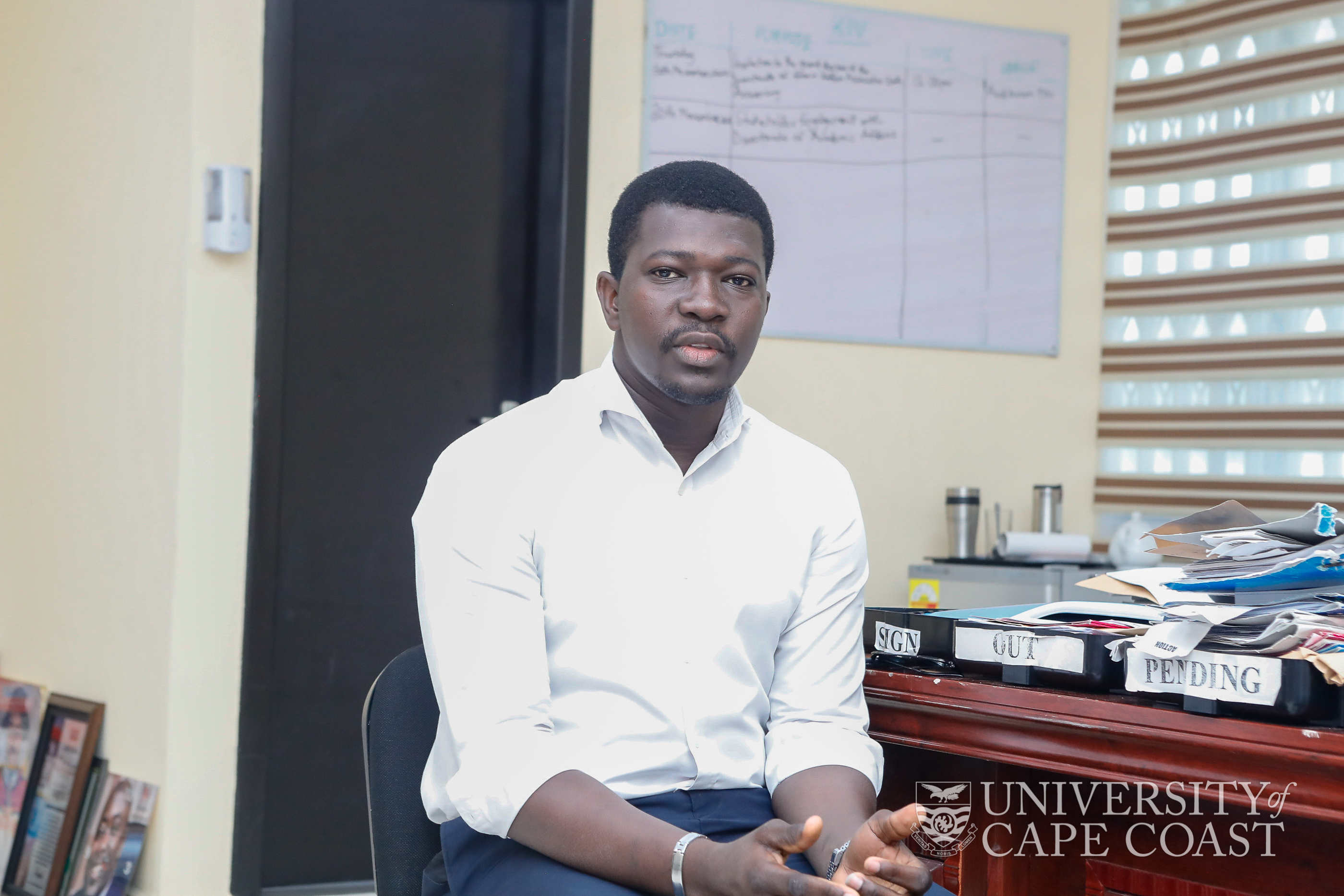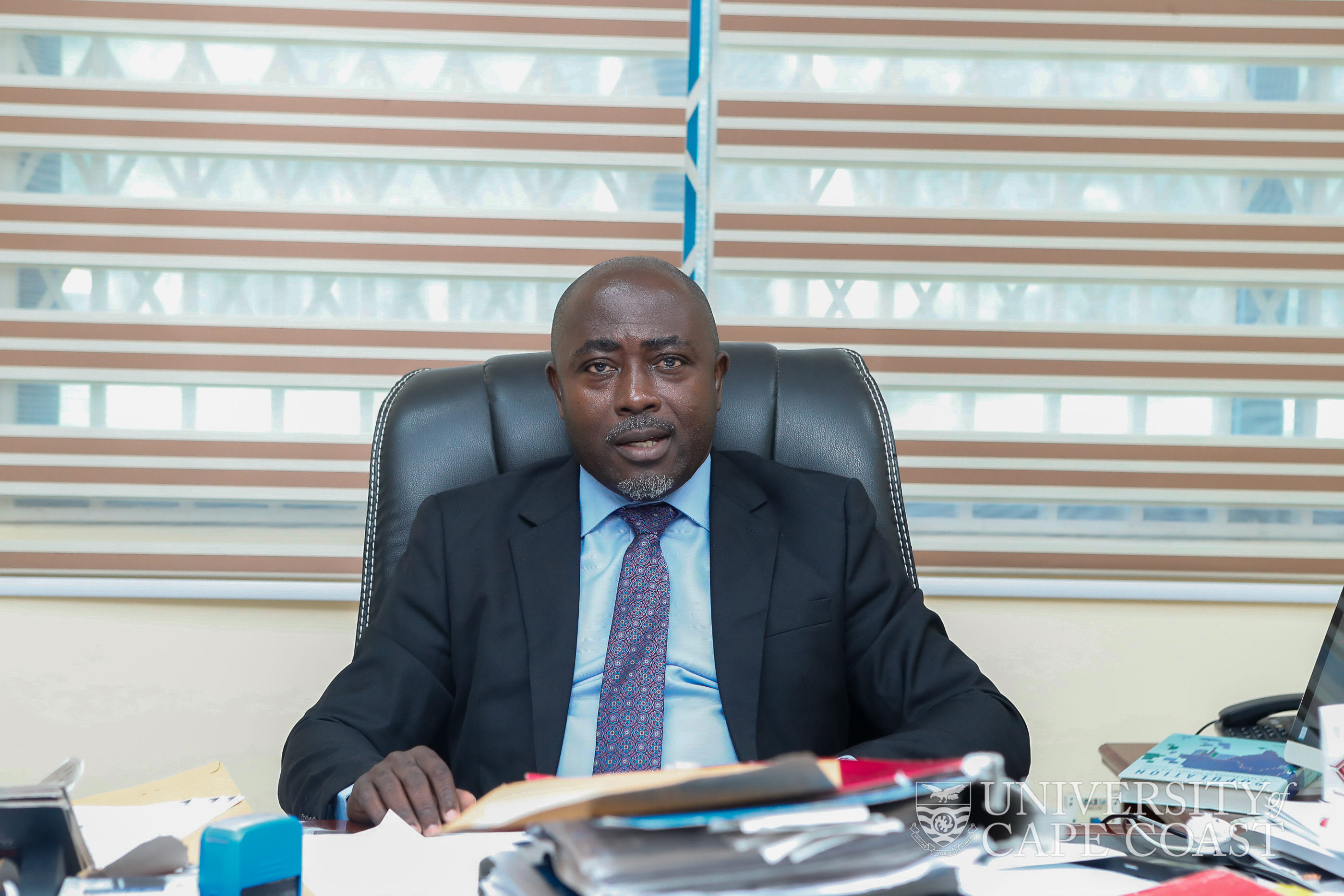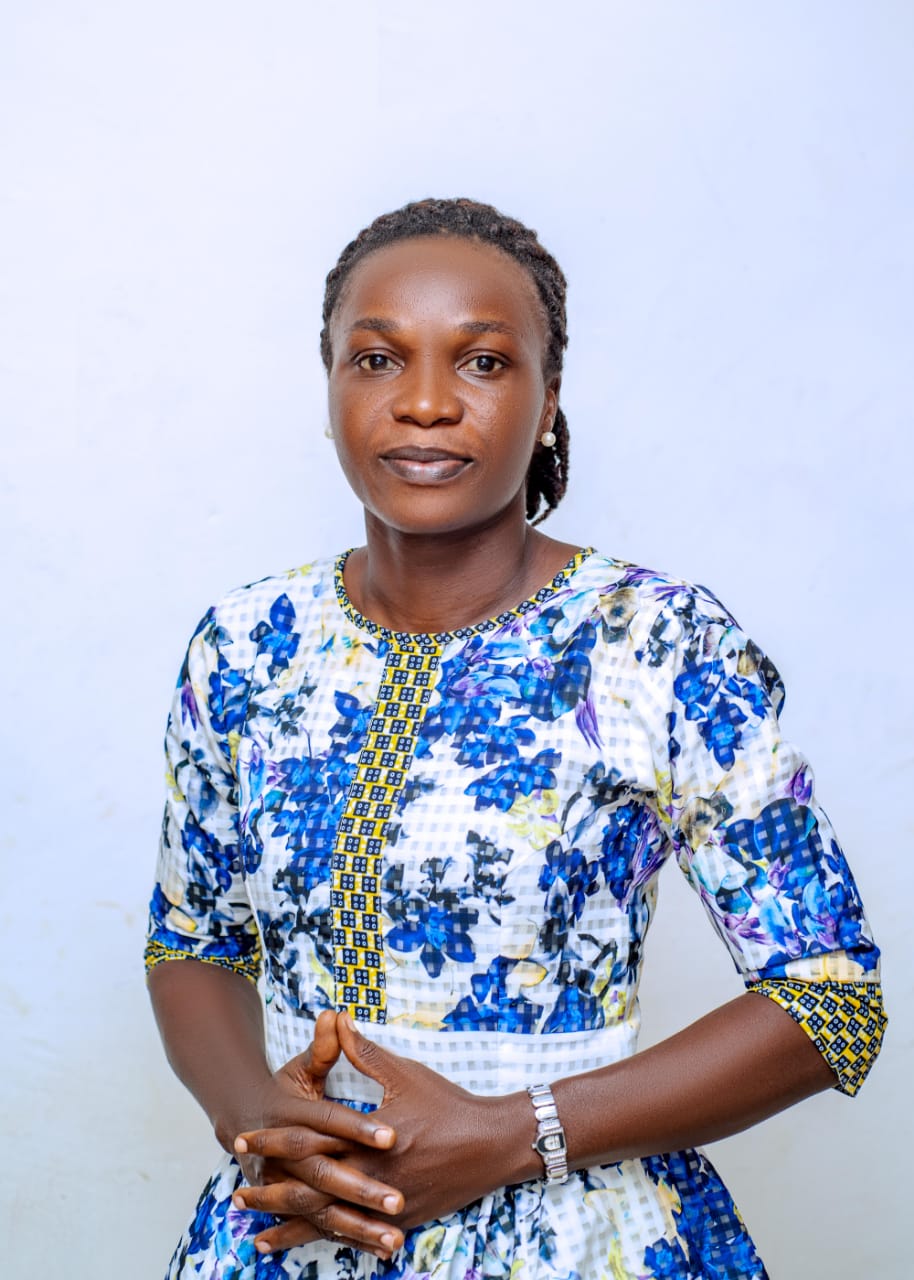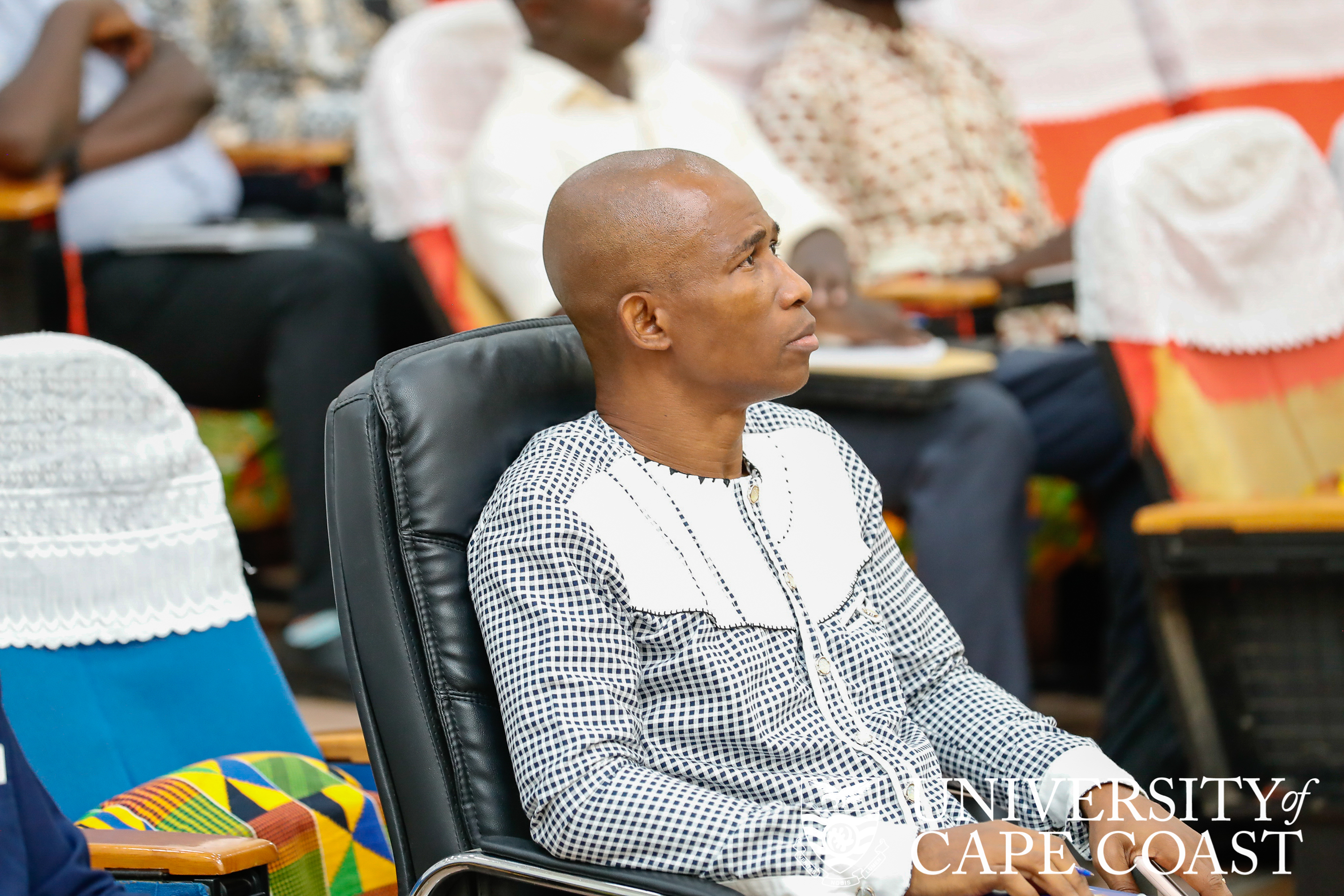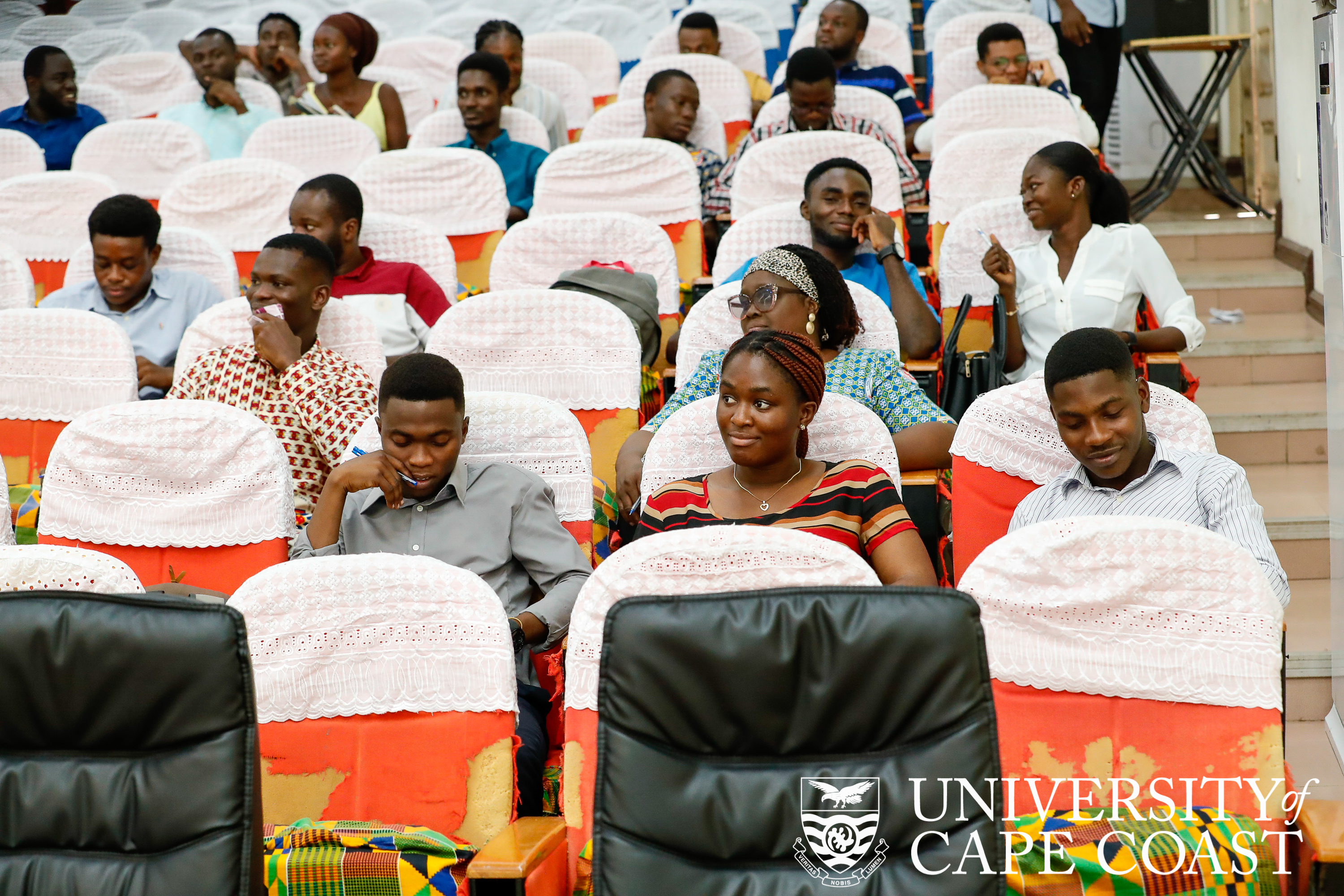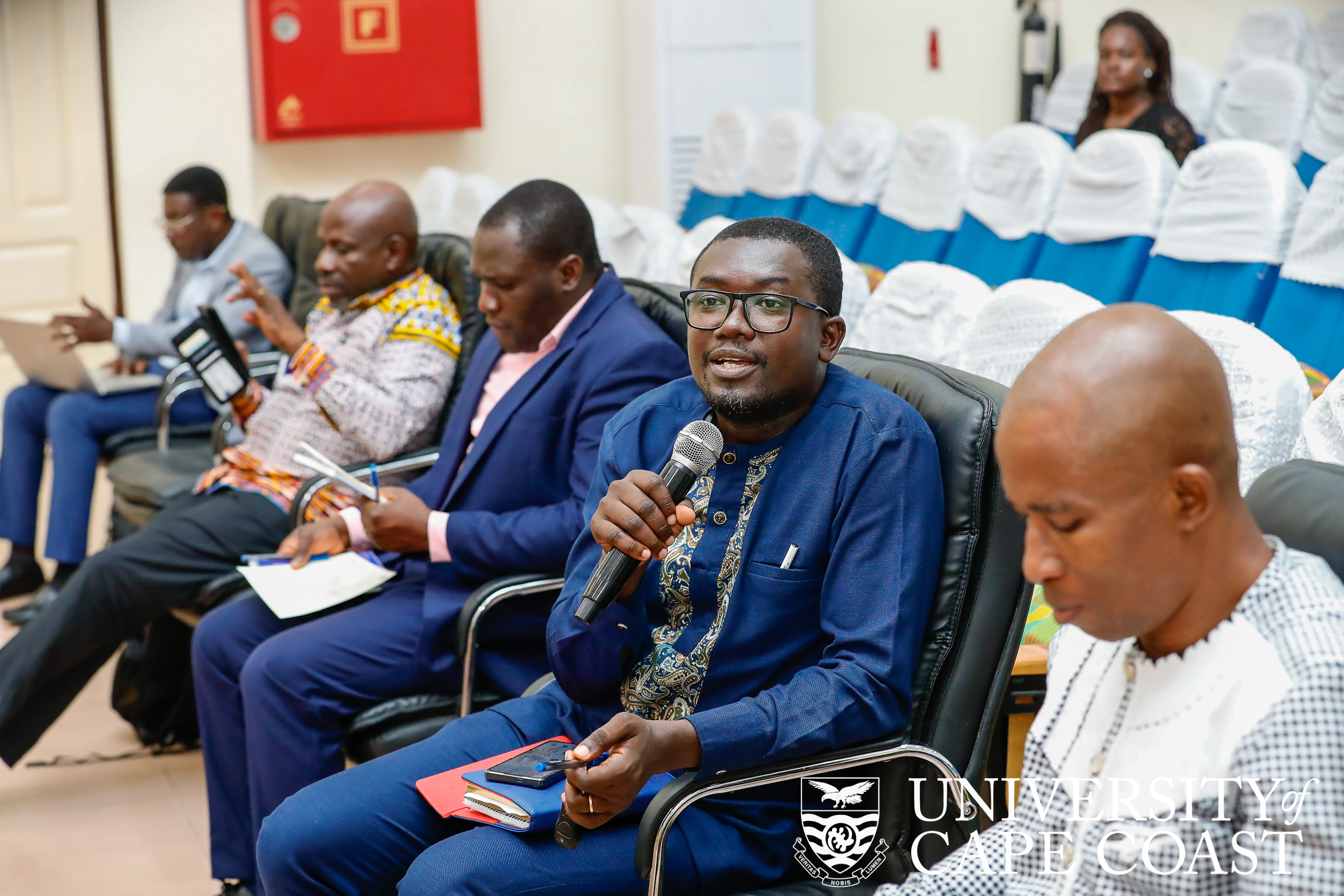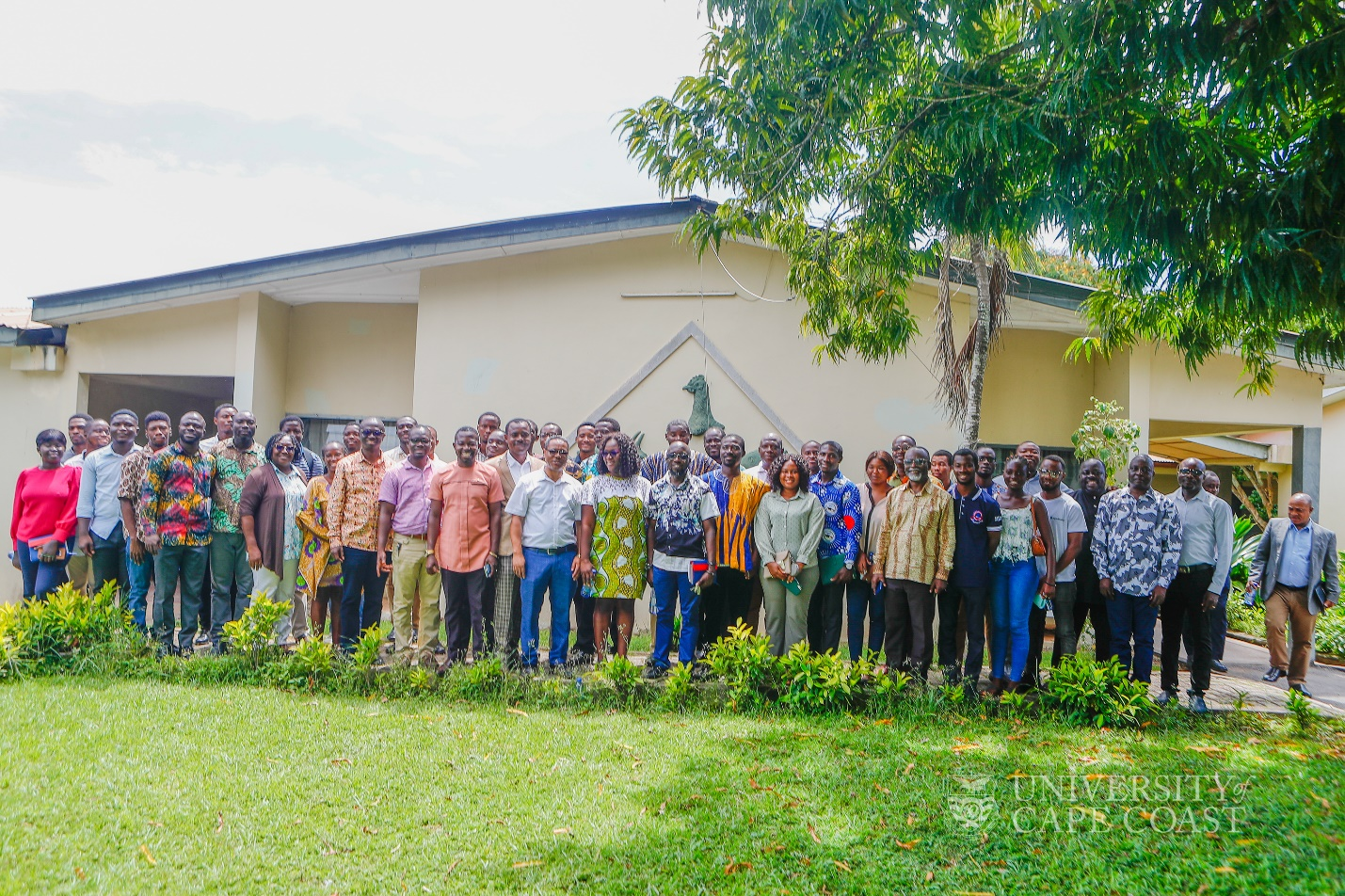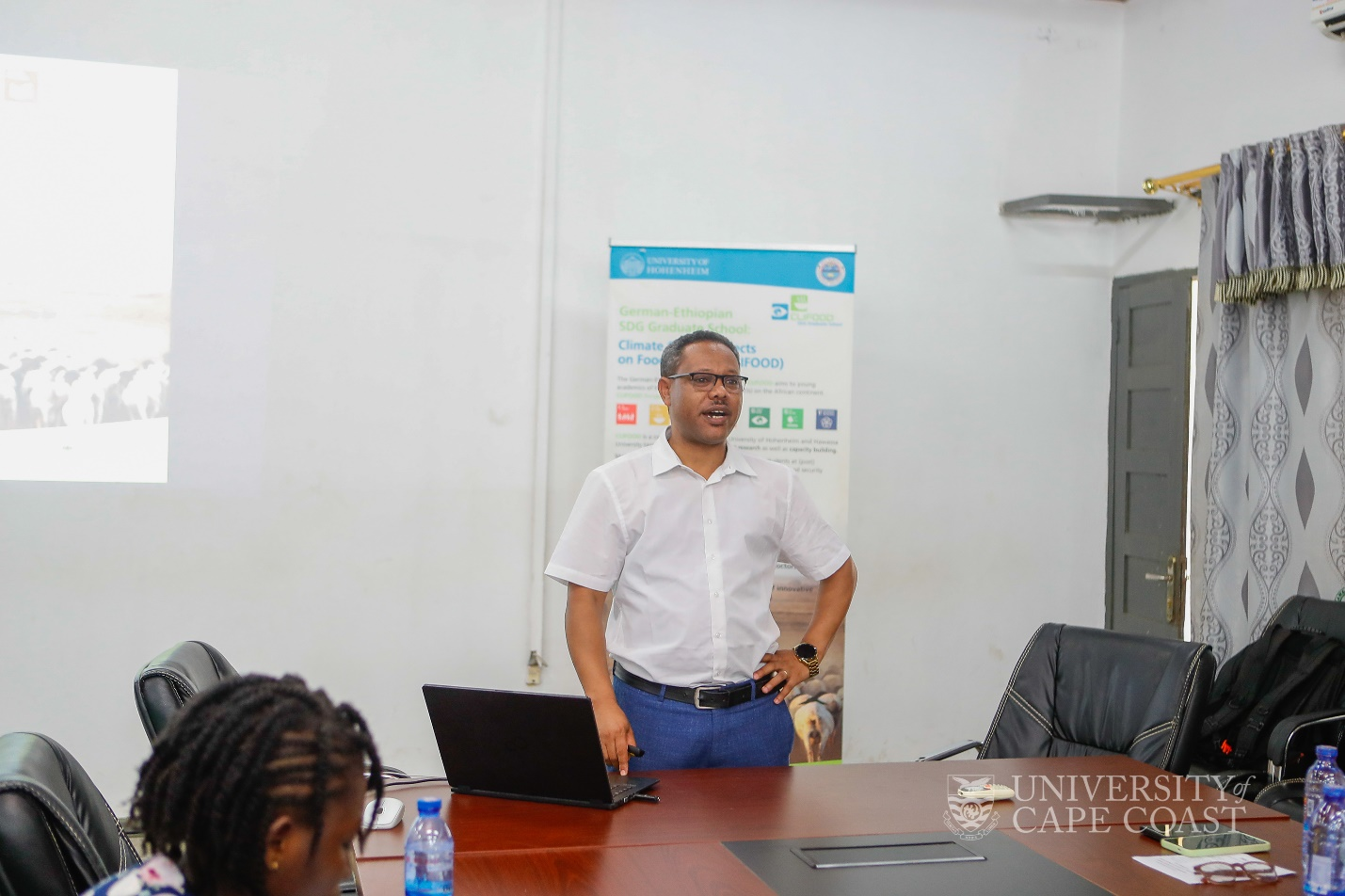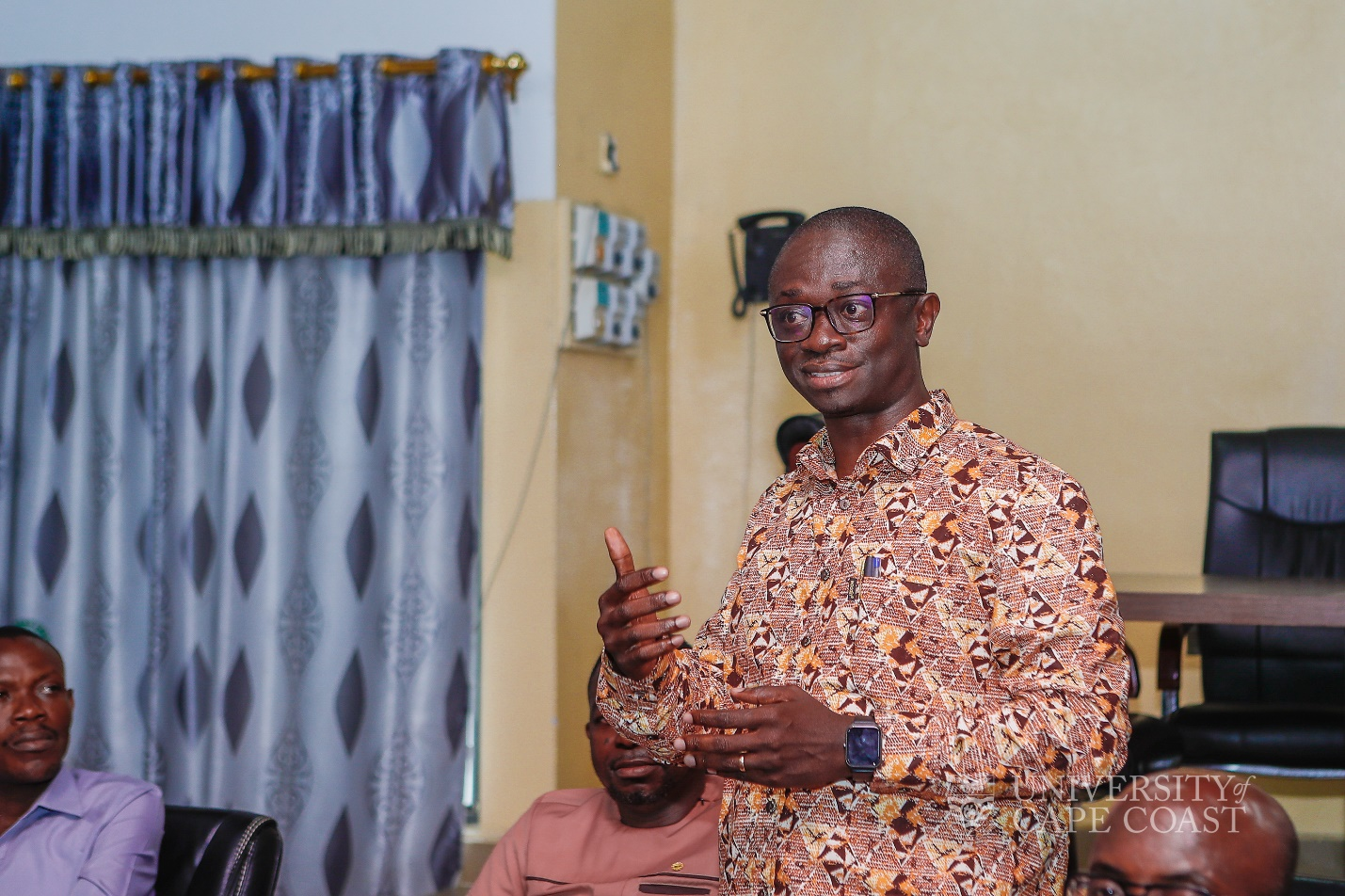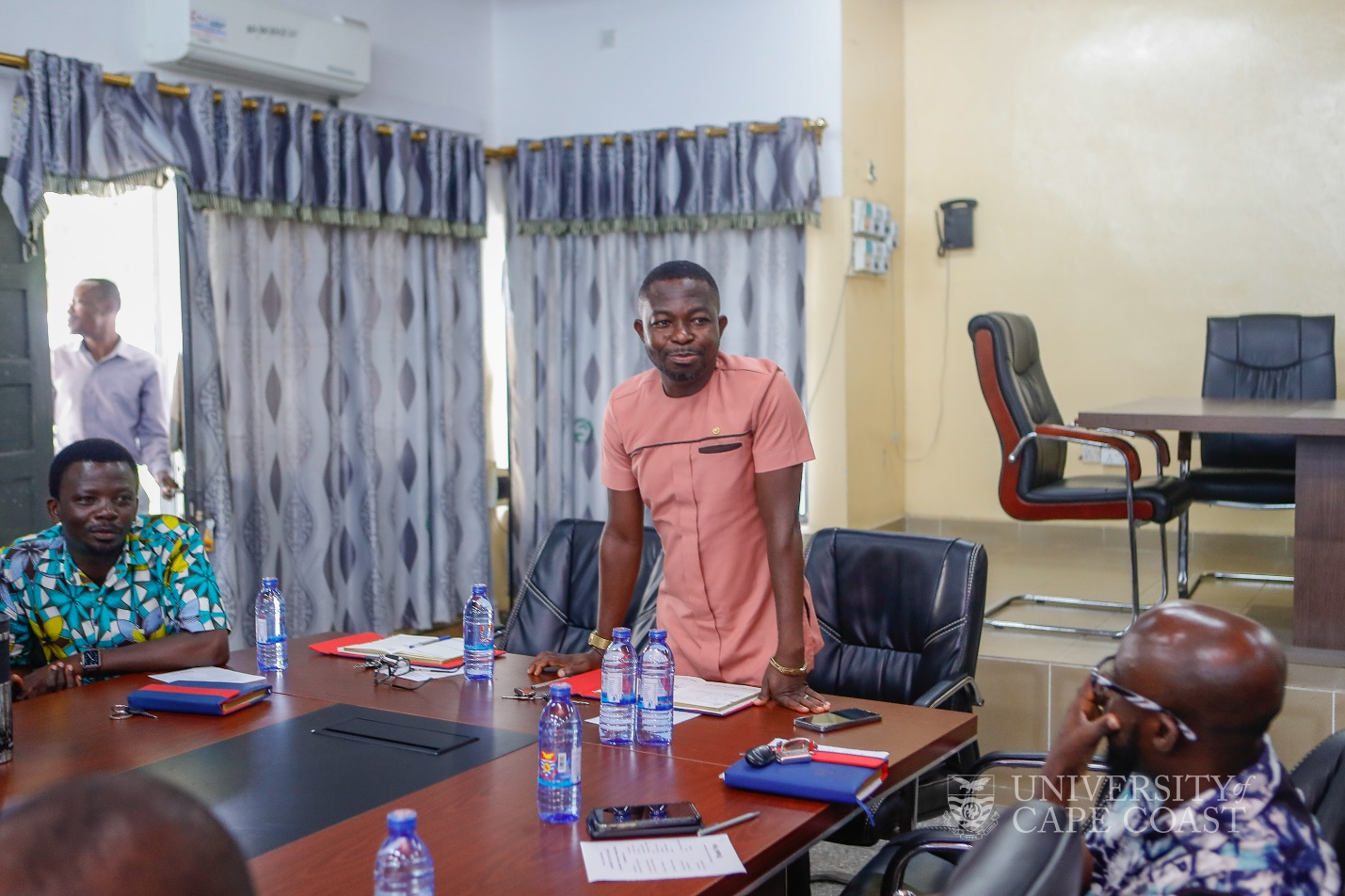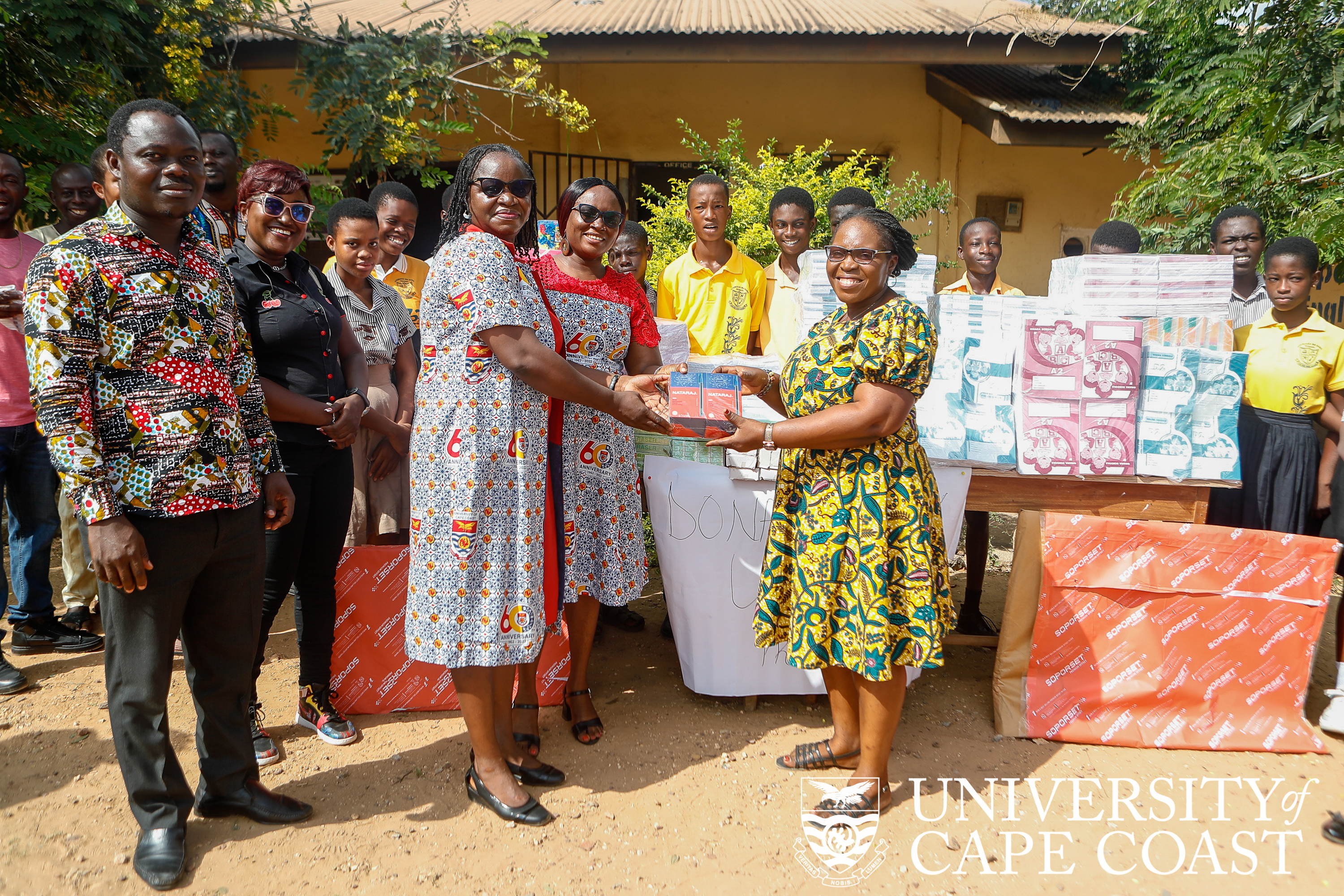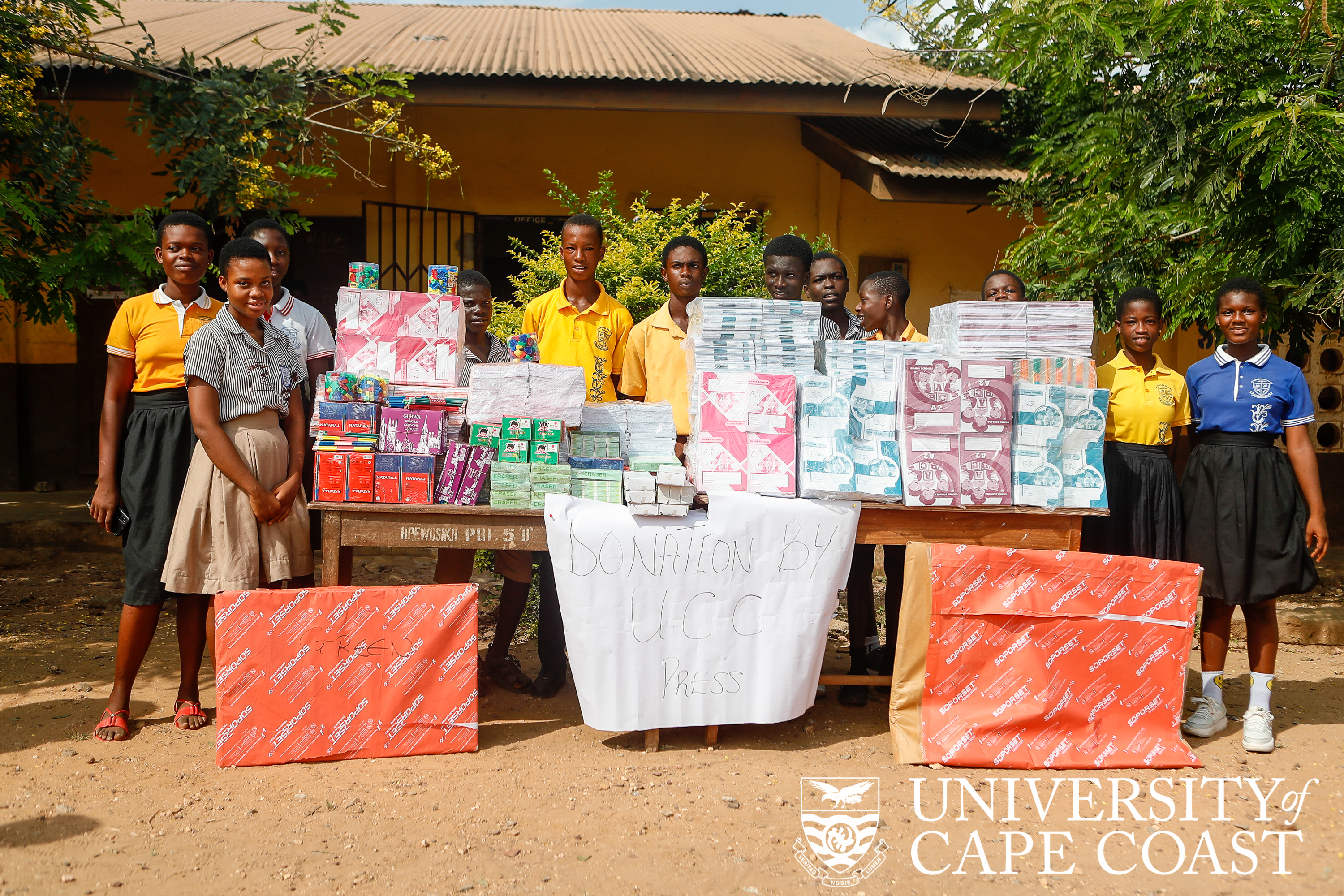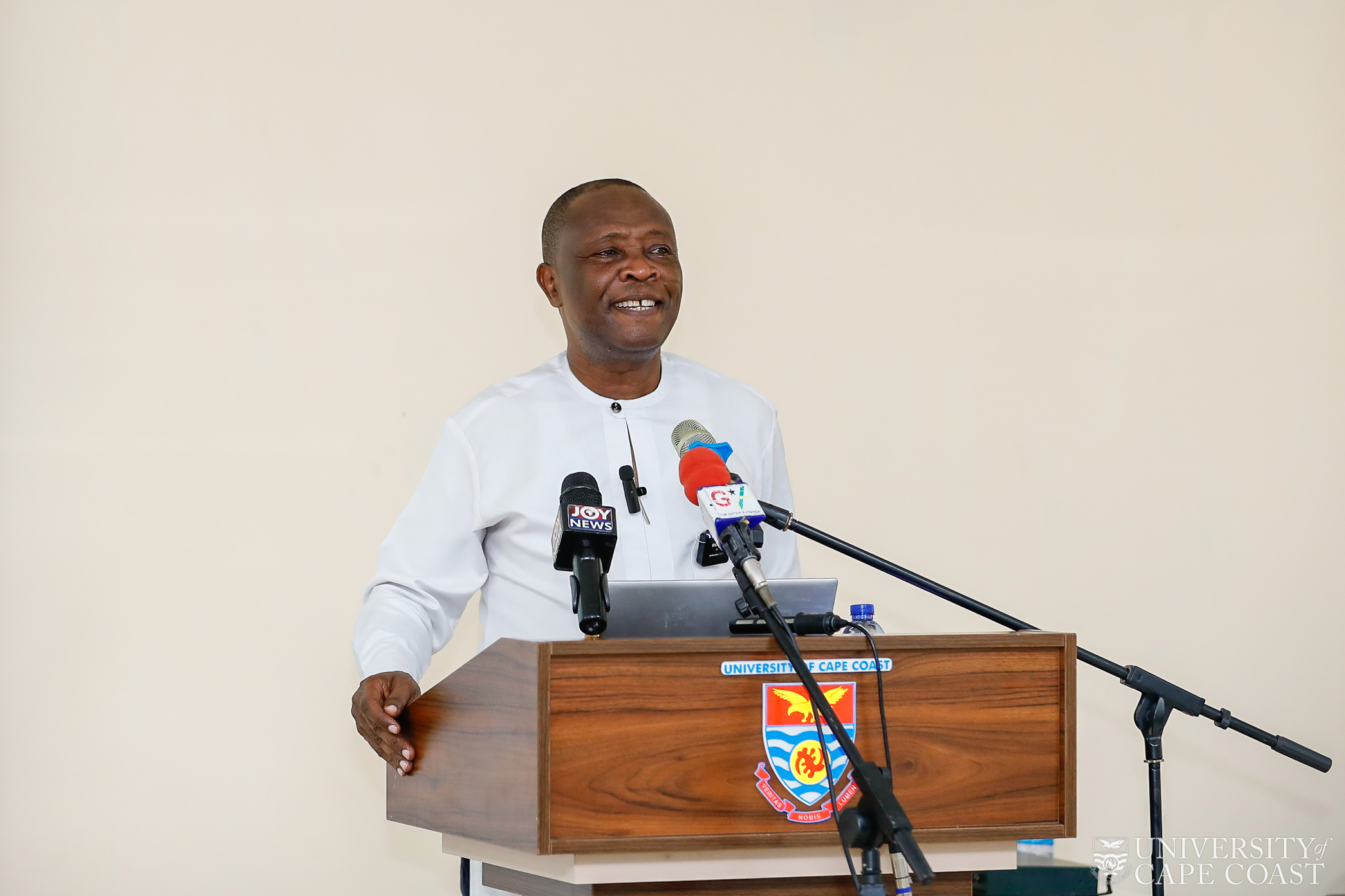The Department of Hospitality and Tourism Management of the University of Cape Coast (UCC) , in collaboration with Tour Operators Union of Ghana (TOUGHA), an association of travel professionals, has organised a day’s capacity building workshop for operators of tourist sites in the country.
Attended by 100 tour operators, the workshop, held at Alisa hotel, was aimed at building the capacity of participants in the trends and regulations in the tour operating sector, sustainable tourism practices, digital marketing,as well as customer service.
The Head of the Department, Prof. Issahaku Adam, in a welcome address, commended TOUGHA’s unwavering commitment to fostering the growth of domestic tourism in Ghana.
Prof. Issahaku Adam (right) presenting a certificate to a participant
Prof. Adam explained that tourism had the potential to transform the country and that there was the need for a paradigm shift to support the development of the sector to enable it to contribute its quota to the country’s development effort.
He, therefore, said the Department would continue to build the capacities of TOUGHA members to roll out innovative programmes to benefit the domestic tourism agenda.
The Head of the Department highlighted the essence of Customer Service and reminded the participants that customer service was not an event but a lifestyle that tour operators must ingrain in their DNA and live it on a daily basis.
That, according to him, would afford them the rare opportunity to interact with customers through which their concerns would be properly taken into consideration and addressed.
A Senior lecturer at the Department, Dr (Mrs) Ewoenam Afenyo-Agbe, took the participants through the Sustainable Tourism Practices.
Prof. Issahaku Adam (right) presenting a certificate to a participant
The President of TOUGHA, Mrs. Alisa Osei-Asamoah, for her part, stressed the unalloyed support received from the Department as regards equipping TOUGHA members with more skills and knowledge on how to improve service delivery.
She said the Union had been engaging in its advocacy programme to educate the public on the importance of water bodies and the great potentials it had for the country’s tourism industry.
In an interview, the participants said the workshop was revealing on some of the shortcomings in the sector and exposed them to more modern and effective methods.
Certificates of participation were presented to all participants.
Source: Documentation and Information Section


